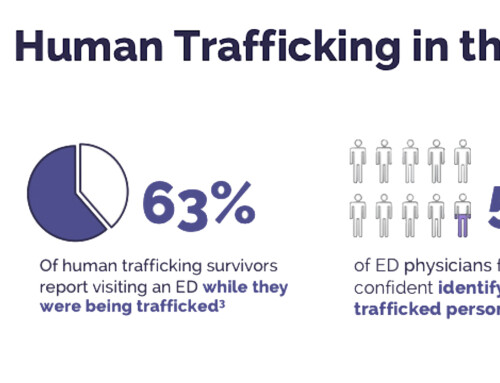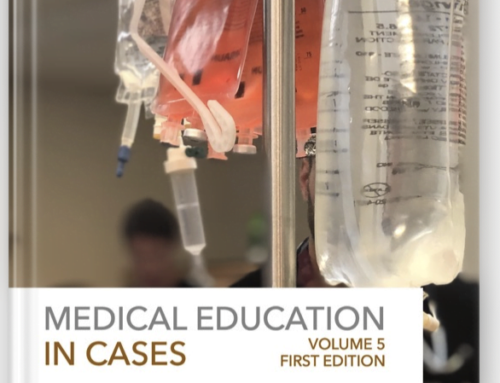 On September 27th we posted the second case of the MEdIC (Medical Education In Cases) series facilitated by Dr. Brent Thoma (@BoringEM) and me (@TChanMD). The Case of the Facebook Faceplant involved a “resident at risk” who lashed out on Facebook about an experience with a nurse. Our readers were thrust into the role of a supervising attending physician who sees the post. Once again, we were overwhelmed by the number and quality of responses in the comments and on Twitter.
On September 27th we posted the second case of the MEdIC (Medical Education In Cases) series facilitated by Dr. Brent Thoma (@BoringEM) and me (@TChanMD). The Case of the Facebook Faceplant involved a “resident at risk” who lashed out on Facebook about an experience with a nurse. Our readers were thrust into the role of a supervising attending physician who sees the post. Once again, we were overwhelmed by the number and quality of responses in the comments and on Twitter.
This follow-up post includes
- The responses by our medical education experts, Drs. Ali Jalali and Ken Milne
- A summary of insights from the ALiEM community derived from the Twitter discussion and comments
- Freely downloadable PDF versions of the case and expert responses for use in continuing medical education activities
Expert Response 1: Thou shalt not be unprofessional – Offline or Online!
Dr. Ali Jalali MD DESMS
Faculty of Medicine Teaching Chair, University of Ottawa
Interesting case. Unfortunately, the lack of courses and policies on social media professionalism leads to the situations like this. The case also highlights the importance of “educating the educators” regarding social media tools integration in education.
This case is a reminder that ethical and professional standards also apply online, in the digital world. I would suggest to Greg that he start by discussing the disagreement with Tammi and listening to her side of the story. He should acknowledge that this must have been a difficult situation for her and see if he can help in anyway.
Afterward, Greg can discuss the Facebook status update with her. He should remind her of the public nature of Facebook posts and how such statements can reflect on her professional persona. Furthermore, he can discuss the potential of such posts in weakening public’s confidence in the health care profession in general.
Greg should also check and see if there are any policies established by the hospital and/or university on such matters. If not, there are several provincial and national bodies that have developed such guidelines.
- The Canadian Medical Protective Association (CMPA) guidelines indicate “Physicians who communicate through social media, on web portals, or via email should be mindful that they are governed by the same professional and ethical standards as would apply in a physical environment”
- The Canadian Medical Association guidelines clearly name “Respect others” under their “Rules of engagement” for use of Social media.
- The College of Physicians and Surgeons of Ontario (CPSO) encourages physicians to “Maintain professional and respectful relationships with patients, colleagues, and other members of the health-care team” when using social networking tools.
- South of the border, the American College of Physicians and Federation of State Medical Boards have published a policy that calls on physicians to “pause before posting” and to avoid the “airing of frustrations and ‘venting’” that “may occur in online forums.”
Greg should then remind Tammi that her professional identity maybe compromised by such postings and suggest that she edit or delete her Facebook post.
Expert Response 2: Facing this Facebook Faceplant
Dr. Ken Milne MD CCFP-EM FCFP
Chief of Staff at South Huron Hospital
This is an excellent case and brings up so many potential discussions. My advice is to prepare, consider the greater context, create a teachable moment, discuss acceptable practices and develop a forward facing plan. The following are some specifics related to this particular case.
- Preparation – There are some great resources (listed in the resources section) available to prepare him, to use when he talks to Tammi. He can review some of these to help him think through various scenarios that could result in a problem learner. I would recommend that you read the paper in the ‘Reading List’ by Dr. Y. Steinert and also the other paper by Dr. S. Bernstein and colleagues.
- Consider the Greater Context – The greater context may include a mental health or substance abuse problem. The combination of the social media outburst on Facebook and being flagged as a “resident at risk” could be signs of a bigger issue. There are resources available for physicians with these problems (http://www.cma.ca/helping-others) and Greg might want to speak with the program director first before he approaches her to see if they are worried about that possibility. If it is not a mental health/substance abuse problem then Greg should use this as a teachable moment. Turn it into something positive for Tammi. We, as a profession, should not eat our young. He could start by allowing Tammi to vent about the shift and nurse involved while validating any legitimate concerns she may have. This may help her to open up about other things going on in her life that are making work difficult.
- The Teachable Moment: Discussing the Mistake – Then Greg should let Tammi know she made a mistake by ranting on Facebook. It might help to normalize the situation, and express that he too has felt frustrated and made mistakes. The social media aspect of this case has unfortunately spread that mistake to a much wider audience. He is best to point out that there are better ways to address concerns about staff than on Facebook.
- Setting Norms: Outlining Acceptable Practices – Tammi needs to be told very early in the dialogue that unprofessional behavior is not acceptable. While it may not have been her intent, her Facebook post reflects poorly on her, the department, the program and the hospital. It breaches professional standards that have been set out by CMPA and CPSO. It may even break the university and hospital code of conduct. Perhaps most unfortunately, it could lead to a poisoned work environment.
- Developing a Forward-Facing Plan – Next, I would start looking for some common ground. Focusing on patient care may be a good place to start as both Tammi and the nurse want patients to receive the best, and conflicts like this can interfere with the safe delivery of care. By calling upon Tammi’s intelligence and insight and getting her to reflect about what happened, he will hopefully be able to discuss the issue without raising her defenses. It may also be worth speaking to the nurse because it is possible that she contributed to the development of the problem. If Tammi is receptive to this approach I would provide her with some tools on how to better handle stressful situations. We are less defined by actions when things go well than when they go poorly. In the ER we can only control certain aspects of our job. We can’t control who comes in the door, what RNs will be working and which consultants will be on-call. What we can control is our responses to the difficult situations that will inevitably arise. Again, I would frame this in a positive light. It is an opportunity for corrective behavior very early in training. It is much better for Tammi that this has happened now than 15 years into her career and when she would be at risk of being labeled a “disruptive physician” (CMPA discussion PDF paper on disruptive physicians). Tammi should be encouraged to apologize to the nurse involved. Greg can offer to meet with the two of them to facilitate this conversation.
An open and honest dialog about the situation could foster deeper understanding and result in a stronger working relationship. Handled effectively, this difficult situation could be the tipping point that helps Tammi to transition from a “resident at risk” to a conscientious and effective physician.
Curated from the Community
A qualitative methodology was used to curate the community discussion. Tweets and blog comments were analyzed, and four overarching themes were extracted from the online discussions. Prior to publication, one of discussion participants (Brent Thoma) performed a ‘member check’ to ensure credibility. I would like to thank our discussion participants Rahul Patwari, S. Ludlow, Michelle Lin, Michelle Gibson, Sandy Dong, Rob Woods, Amy Walsh, Nikita Joshi, Lindsay Melvin, Matt Siedsma, Eve Purdy and Toxic_Tweets
Mind your Digital Footprint
Multiple readers (R. Patwari, Toxic_Tweets) suggested that social platforms like Facebook and Twitter are public platforms. Social platforms are for sharing and should be treated as open, public spaces. As such, they may not be the best place to air grievances. Privacy statements and agreements are evolving, and anything in cyberspace might resurface. We need to ensure learners know the rules by making them aware of social media policies that exist.
Pre-Posting Checklist
Many participants had personal tips and checks that they use to screen their own posts. Here is a listing of common advice given.
- Use common sense. (M.Lin)
- When in doubt, leave it out. (M.Lin)
- Trust your gut. (E.Purdy)
- Don’t share/send/submit while angry. (Multiple comments)
- Ask yourself ‘Why?’ and ‘Why here?’ before you post. (E. Purdy)
- Consider debriefing offline first. (Multiple comments)
- Solicit, listen to feedback, and give in in return (E.Purdy)
What is the REAL issue here?
The temptation for many would be to take the present event as an ‘issue’ and to label it as a breach of professionalism. Multiple participants suggested that the issue raised by labeling Tammi as a “Resident-At-Risk” may introduce or hint at bias against Tammi. That said, reporting may help her supervisors to see a pattern of behavior. Many astute participants (who are also Program Directors for Residency Programs) pointed out that it is imperative for Greg (or any other faculty member) to empathize with the situation, but also debrief and support Tammi around her recent conflict situation. Keeping local policies in mind, remediation around any breaches may also be necessary. Many of our observant MEdICS participants aptly pointed out the myriad of possible underlying issues, including:
- Conflict between Tammi & her nursing colleague
- Cultural problems around error detection (‘questioning orders’ vs. double checking)
- The label of ‘Resident at risk’ becoming a self-fulfilling prophecy?
Nurses, Residents, and the Culture Around Errors
Many participants noted that communication difficulties between nurses and residents are likely an age old issue. Their occurrence is so ‘classic’ it has been prominently featured in medical pop culture ranging from ‘ER’ to ‘Scrubs’. A lot of our readers (learners, docs and nurses) noted that it is imperative to look more carefully at the conflict situation that fueled the Facebook Faceplant by asking some difficult questions:
- Is the ED culture conducive of flagging errors?
- As ‘to err is human’ and ‘we all make mistakes,’ how are pharmacy technicians and RN’s treated when they question orders?
- Does the ED allow the collaboration needed to better our patients’ lives?
- What role does ego play in the ED?
Case and Responses for Download
The use of this case and its expert responses is encouraged for the purposes of continuing medical education and faculty development. We’d love to hear how you’ve used these resources! So if you do, please email or tweet us (@BoringEM and @TChanMD) to let us know.
PDF of Case and Expert Responses
References
Useful Papers & Reflections
- Bernstein, S., Atkinson, A. R., & Martimianakis, M. A. (2013). Diagnosing the Learner in Difficulty. Pediatrics, 132(2), 210-212.
- Chretien, K. & Kind, T. Social media and clinical care: Ethical, professional and social implications. Journal of the American Heart Association, 2013, 127 (1), 1413–21.
- Steinert, Y. (2013). The “problem” learner: Whose problem is it? AMEE Guide No. 76. Medical teacher, 35(4), e1035-e1045. PMID 23496125
- Benike LA, Clark JE. “Bridging the Professional Divide Between Nurses and Medical Residents” Harvard Business Review Blog. September 30, 2013. Accessed last October 2, 2013.
- Joshi N. “Feedback Loops: Why Doctors Write Stupid Things on the Internet.” July 24, 2013. Last accessed on October 2, 2013.
Useful Links and Policies
- Canadian Medical Protective Agency, Technology Unleashed – The Evolution of Online Communication, June 2012
- Canadian Medical Protective Association, The Role of Physician Leaders in Addressing Physician Disruptive Behavior in Healthcare Institutions [PDF]
- Canadian Medical Association, Social media and Canadian physicians – Issues and Rules of Engagement
- College of Physicians and Surgeons of Ontario, Social Media – Appropriate Use by Physicians
- Canadian Federation of Medical Students, Guide to Medical Professionalism: Recommendations For Social Media
- Canadian Medical Association, Resources for Helping an At Risk Colleague
- Policy Statement From the American College of Physicians and the Federation of State Medical Boards, April 16, 2013
- Mayo’s Social Medial Policy, April 5, 2012




